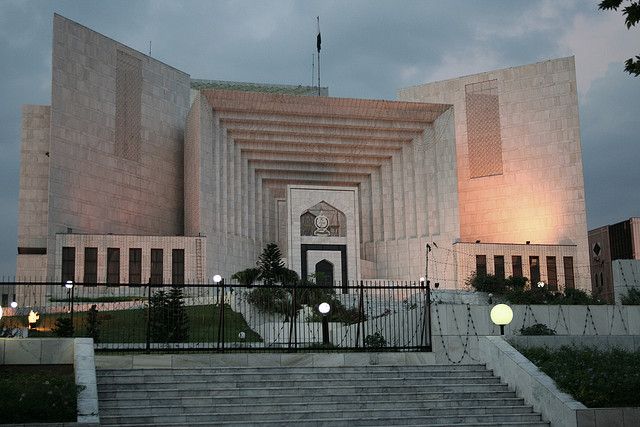In a recent development, the judicial commission led by Justice Qazi Faez Isa, which is investigating audio leaks, has raised objections regarding a larger bench hearing petitions against the formation of the commission. The commission stated that it was “not appropriate” for the bench to handle these petitions.
The Pakistani government established the commission on May 20, appointing Supreme Court judge Justice Qazi Faez Isa, Chief Justice of the Balochistan High Court Naeem Akhtar Afghan, and Chief Justice of the Islamabad High Court Aamer Farooq as members. The commission’s purpose is to probe the authenticity of audio leaks involving present and former members of the judiciary and assess their impact on judicial independence.
Several petitioners, including former Prime Minister Imran Khan, contested the formation of the commission. Consequently, a five-judge bench of the Supreme Court, headed by Chief Justice of Pakistan Umar Ata Bandial and comprising Justice Ijazul Ahsan, Justice Munib Akhtar, Justice Syed Hasan Azhar Rizvi, and Justice Shahid Waheed, suspended the proceedings of the probe panel while considering the petitions.
Responding to a petition, the commission submitted a concise statement arguing against the bench’s involvement in hearing the petitions. The statement emphasized that judges must adhere to the code of conduct issued by the Supreme Court Judicial Council and refrain from allowing personal interests to influence their official decisions. It further highlighted the necessity for judges to avoid cases involving their own interests, close relatives, or close friends.
The commission’s concise statement pointed out that one of the audio recordings allegedly involves the mother-in-law of the Chief Justice, and Justice Munib Akhtar is also mentioned in another recording. Additionally, it mentioned a reference to a case before a specific bench headed by Justice Ijazul Ahsan in one of the recordings.
The statement contended that the members of the commission are obligated to act in accordance with the law, including the Constitution, legislation, and the code of conduct. It clarified that the Act granting the power to constitute an inquiry commission to the Federal Government under Section 3(2) does not mandate consultation with the Chief Justice of Pakistan.
Regarding the government’s plea to recuse certain judges from hearing petitions against the inquiry commission, the Supreme Court returned the petition, stating that objections to judges should be raised before the bench, not the Registrar’s Office.
The objections raised by the Justice Isa-led commission against the larger bench hearing petitions challenge the appropriateness of the bench’s involvement. As the judicial commission continues its probe into audio leaks, further developments are expected in this significant legal matter


